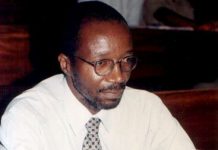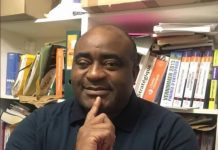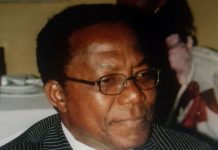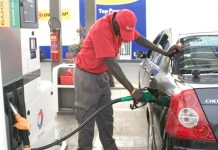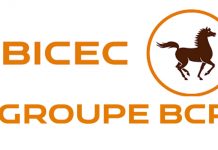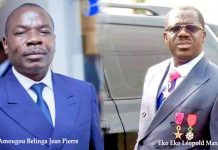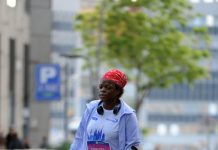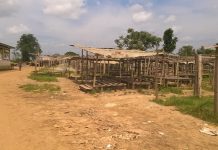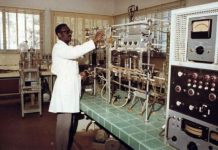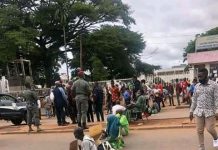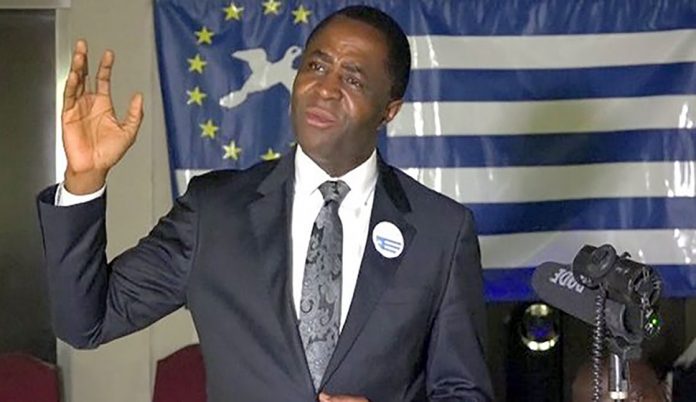The conflict in the North-West and South-West regions of Cameroon has been going on for almost six years. The toll of this conflict, particularly heavy, varies according to the sources. The fact remains that thousands of our compatriots, innocent civilians, soldiers of the Cameroonian defence and security forces, and fighters for the restoration of Southern Cameroons, have lost their lives. Since 2017, according to authoritative sources, more than 6,000 people have lost their lives, nearly 800,000 people have been displaced as a result of this crisis and 600,000 children do not have full access to education. Leaders fighting for the restoration of Southern Cameroons independence have been arrested in Nigeria, brought back to Cameroon, imprisoned, tried in court and sentenced to life imprisonment. Many activists and supporters of the cause have been killed, with weapons in their hands. Others are languishing in Cameroonian prisons. The exactions of the battlefields, the executions and other abominable killings, the arrests, the convictions, none of this has put an end to the crisis. On the contrary, it has accentuated the conflict and strengthened the determination of many of the defenders of the so-called Ambazonian cause to go all the way.
All Cameroonians, and honest and credible observers, have long argued that only a political solution, resulting from negotiations between the different parties, can end this crisis. Attempts to bring the parties together have already been made (Swiss mediation or local initiatives), but they have always come up against the reluctance of fanatics and intolerant people on all sides who, in the opinion of informed people, are benefiting from a crisis economy in the North-West and South-West regions.
On 20 January 2023, Canada’s Minister of Foreign Affairs, the Honourable Melanie Joly, in a statement on peace in Cameroon, revealed that her country had agreed to act as a facilitator in the process of resolving this crisis. She also informed us that all parties to the conflict have also agreed to enter into a negotiation process for a comprehensive, peaceful and political resolution of the crisis. According to the statement, the parties to the agreement, which also expressed the hope that other groups would join the peace process, are the Republic of Cameroon, the Ambazonia Governing Council and the Ambazonia Defence Forces, the African People’s Liberation Movement and the Southern Cameroons Defence Forces, the interim government, and the Ambazonia Coalition Team.
This announcement raised a lot of hopes on the part of the Cameroonian government and the militants or fighters for the Restoration of the Independence of Southern Cameroons, as well as on the part of the Cameroonian population and the various actors involved in the search for solutions to the conflict.
In order to understand the ins and outs of this crisis, and in a way to help clear the way for its possible peaceful resolution, we met Sisuku Ayuk Tabe, President of the Interim Government, and his companions in misfortune, now known as the « Nera 10 », i.e. the 10 people abducted from the Nera Hotel in Nigeria, at the main prison in Yaoundé, Kondengui. With him, we went around the Anglophone question in Cameroon. Read on!
Most Cameroonians know very little about your arrest in Nigeria. Can you summarise for us the circumstances of your arrest?
Thank you very much for taking interest in the conflict and the need to understand our own side of the story. Your paper is not the first to do so, but we cannot get tired of telling our story. We hope that this interview will inform your people more and that they will consequently understand why we have opted out, and consequently will call on their government to come to terms with this reality and stop wasting their scarce resources in an attempt to hold us back.
To your starter question, the right word to use is kidnap or abduction, not « arrest » given that all procedures required for an arrest, local or international, were grossly violated. In deciding on our petition, the United Nations Human Rights Council Working Group on Arbitrary Arrest and Detention (UN-HRC-WGAD) in its Communication No 59/2022 of 14th October 2022, highlights clearly that what you call « arrest » was a blatant abuse of our human rights.
On the 5th of January 2018, while sitting in the gardens of the Nera Hotel in Abuja with over 500 other customers, about 20 unidentified gunmen kidnapped 12 of us. The persons abducted were :- Sisiku AyukTabe, Tassang Wilfred, Nfor Ngala Nfor, Barr Shufai Blaise Sevidzem Berinyuy, Barr Eyambe Elias, Dr Egbe Ogork, Dr Fidelis Ndeh Che, Dr Kimeng Henry, Dr Cornelius Kwanga, Prof Cheh Awasum Augustine and two others. We were whisked into an underground detention facility which we later identified as the Defense Intelligence Agency (DIA), Abuja, and held incommunicado for 20 days. Thereafter, we were illegally renditioned (Refoulement) to Le Secrétariat D’Etat à la Défense (SED) Yaounde Cameroun where we were further held incommunicado for 10 months. On the 22nd November 2018, we were transferred to Kondengui Principal Prison Yaoundé. We were eventually, in a one-day sham trial, sentenced to life imprisonment.
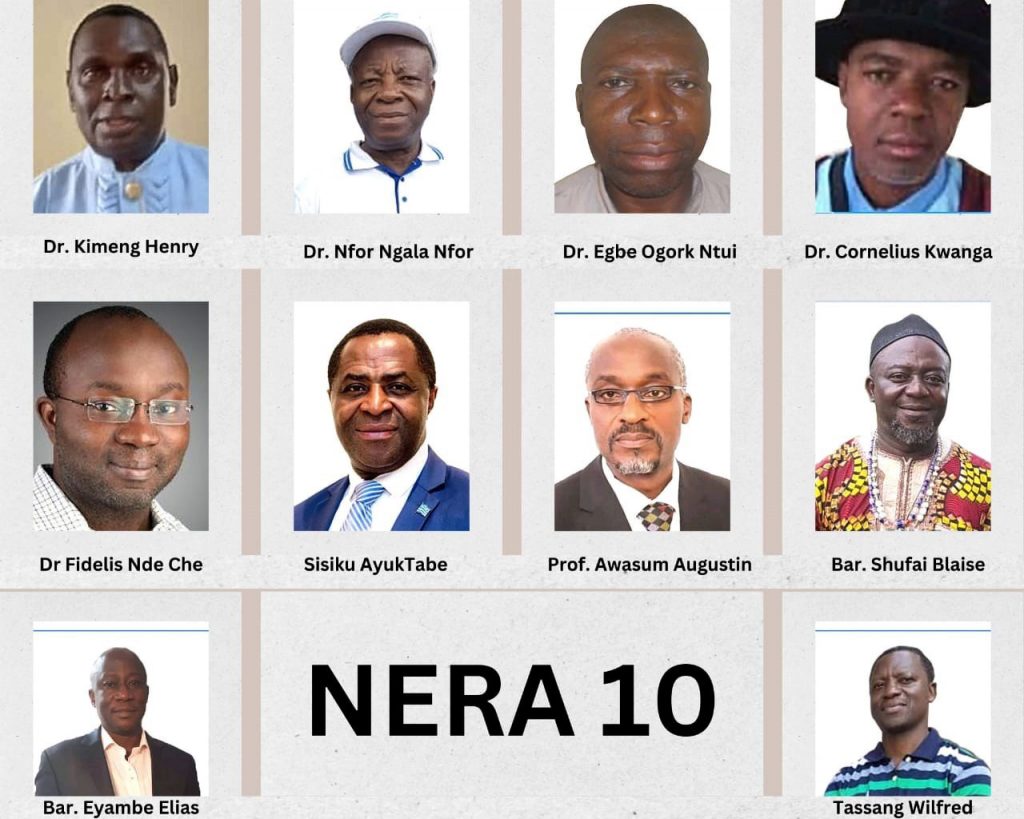
With hindsight, do you understand what happened?
In 2016 it should be recalled, there were sustained strikes on the territory of the Southern Cameroons by Teachers and Lawyers who had petitioned the Cameroun government against a plethora of issues that affected their professional practice especially linguistic constraints. Rather than listen and solve the problems, the Cameroun government decided to descend on them with brute force and torture, resulting to several deaths. The Consortium which had been created as an umbrella organisation to champion the cause was banned along with the Southern Cameroons National Council (SCNC) – which had been campaigning for the restoration of the Statehood of the Southern Cameroons. Their leaders were declared wanted by the Cameroun government. Some of them were arrested and some escaped to Nigeria where they sought and were granted refugee status. Looking back now, we can say the security services of Cameroun and Nigeria connived, planned and orchestrated the kidnap of the leaders who had escaped to Nigeria and others. By virtue of our refugee status, we should not have been extradited to Cameroun without due process. Complicity between the Nigerian security services and Cameroun government officials is evident in the fact that we were detained in DIA – a Nigerian military facility where a delegation from the UNHCR met us in the presence of a Nigerian Brigadier General. Further proof of this complicity is the fact that a Cameroun military plane was given authorisation to land in Abuja Nigeria on the 25th of January 2018, from where we were illegally renditioned to Cameroon.
What appreciation do you make of Cameroun-Nigeria relations today and tomorrow in the light of your arrests?
As far as we are concerned, Cameroun and Nigeria perpetuated state-sponsored terrorism, regarding what they did to us. They are states that conspired to violate our fundamental human rights and utterly dehumanise us. They remain as such till they take appropriate internationally accepted measures to legally and legitimately rehabilitate and compensate us, especially now that in addition to the March 2019 Abuja Federal High Court Judgments that ordered for our release, the UN-HRC Working Group on Arbitrary Detention (WGAD) has also found them guilty of these egregious violations and ordered for our immediate release and Compensation by both countries.
You were conveyed to Yaoundé in a military aircraft. What was the state of your mind during the flight?
The military plane in question was a cargo carrier. Our arms were twisted and handcuffed behind our backs and we were then lifted and thrown into the aircraft like cargo. We sat on make-shift netted seats without seatbelts and with guns pointing at us throughout the journey. This was a glaring signal that all was not well. However, we remained poised and calm throughout the journey. Nobody was visibly alarmed, for we knew then as we know today, that there is no price too heavy to pay for the freedom of our people.
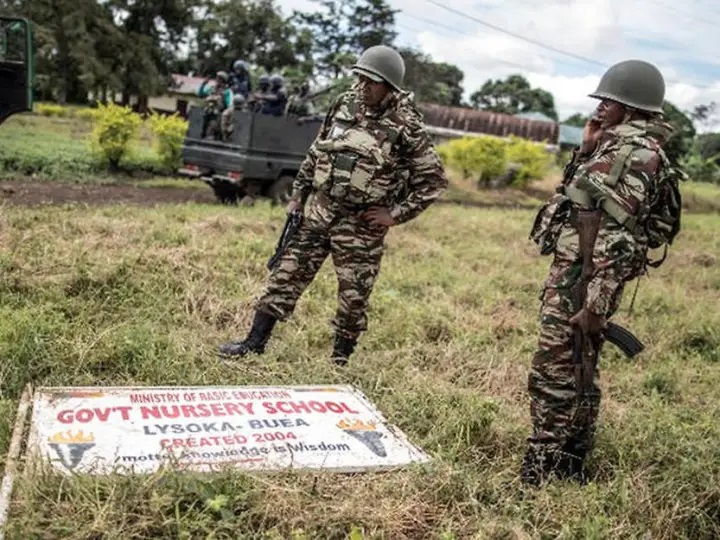
Did it occur to you that you could be killed, disappeared, as was the case in the past, with a onetime opponent of the regime in exile, Captain Guerandi Mbara?
Yes, with guns pointed to our faces, and with the Cameroun soldiers openly saying they were going to execute us, we imagined that it could be our last day on earth. Most of us said our last prayers and sat quietly waiting for any eventuality. This is the price we are all ready to pay for the freedom of our people. The readiness to redeem our people trumps every fear and this courage is not unique to us. Every committed Southern Cameroonian is ready to pay this price.
You spent 7 months in SED upon arrival in Cameroun. Describe for us your detention conditions. How do you assess these conditions vis-à-vis municipal and international laws?
Point of correction; we spent 10 months in SED, not 7 as you have indicated. These 10 months were on the pretext that the investigators were looking for evidence of the crime we had committed. The question one would ask is why adduct people and brandish them as terrorists without evidence? Our detention conditions in SED violated every law protecting humanity. It was at SED that they said of us « they are worse than slaves » and we were treated as such.
Upon arrival at SED, we were all asked to undress and line up naked. A team of gendarmes molested us by holding and making a mockery of our private parts. With elders in our midst like Pa Nfor Ngala, they made our penises objects of ridicule and touched us at very awkward places. Thereafter, we were handed a pair of tracksuits which we wore as the only clothing for 46 days before a second one was offered to us. These two dresses we wore from January to November. We were also given bloodstained mattresses and pillows to sleep on, perhaps to prepare us for what awaited us in the days ahead. Routine abuses were regular and frequent, poking of our rectum with fingers and aggressive massages of our penises and testicles during routine search was common. On two occasions, the rooms were sprayed with acaricides and rodenticides with us inside. The conditions of detention were horrible. For instance: severe noise pollution due to extensive use of heavy-duty noisy machines, day and night, when the walls of the cells in which we were detained were being reinforced; there was a reduction of the fenestrations of the metal doors of the cells to reduce visibility and inflow of air. This was done using heavy welding machines which further polluted our cells with noise and the strong pungent smell of burnt paint with us in the cells; The doors were again painted with aggressive toxic paint to further punish us with the suffocating smell. The tap water in the cells was constantly reddish in colour. There was frequent and aggressive torture/flogging of 37 other detainees from Taraba and 9 of the 11 (Including a 15 months old baby – Caleb) from Calabar, Nigeria who were with us. By doing this, they constantly physically tortured our brothers and thus psychologically traumatised us. Daily, the Taraba 37 and Calabar 11 (as they are commonly known) were hooded, handcuffed and railed through rocky undulating pathways usually between 8.00pm and 4.00am for torture and interrogation in the absence of their Counsel. Caleb was not provided children’s food and he was detained in almost the same inhumane conditions like us. It was particularly traumatising to hear him cry and when the Gendarmes yelled at him and called him terrorist. We were transferred to Kondengui Prison Principale Yaounde (KPPY) on the 22nd November 2018. The 10 months we were in SED were really dehumanising.
You were subsequently sentenced to life imprisonment. What is your assessment of the judicial process leading to your sentence?
The judicial process that ended in the highly contested life imprisonment slammed on us by the Yaoundé military tribunal was a sham, total abuse and an absolute travesty of justice. What we saw in the courts was void of any credibility.
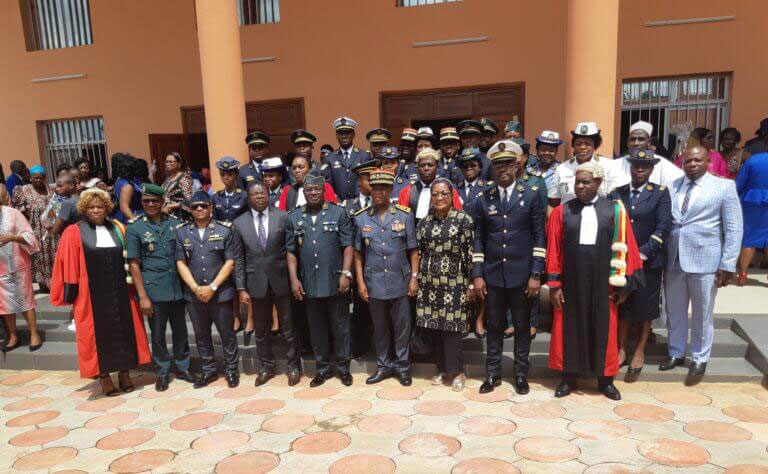
Do you think your sentence was just? In what aspect? Has your sentence discouraged you or has it rather strengthened your resolve to continue to the logical end?
Our condemnation to life imprisonment remains most unjust in many respects and violated all canons of Fair or Equitable Trial. We will highlight just a few of them here:
i) The Court itself being a Military Tribunal lacked the competence to try or hear our case, given the fact that all 10 of us are civilians, asylum seekers and refugees abducted from Nigeria. Article 45 of the Cameroun Constitution posits that International obligations take precedence over national legislation. Following International law, the Military Tribunal was incompetent to try us.
ii) The panel that condemned us led by Lt. Col. Misse Njone Jacque Baudouin had been formally recused but they imposed themselves against all civilised norms and continued with the trial.
iii) We all originate from a Common Law jurisdiction. None of us resided nor had family in Yaounde but we were abducted and renditioned to Yaounde where we were tried, sentenced and incarcerated under the civil law.
iv) We were charged with felony on several counts but we were tried without legal representation, and the tribunal did not even assign us lawyers « d’office » as required even by Cameroun laws in such cases.
v) We were tried in French – a language we neither understand nor speak.
vi) The court imposed Cameroun citizenship on us despite the fact that we had denounced it. This was a flagrant contravention of their 1968 Nationality Code and our right to citizenship of choice.
vii) The Tribunal tried and sentenced us without arraignment.
viii) The prosecution witnesses were not sent out of court and out of hearing as required by standard practice and even Cameroun law.
ix) The court made use of public address systems without proper legal procedures and justification.
x) One of us developed a malaise and collapsed during the proceedings but the court went ahead with the trial, with him lying prostrate on a bench, struggling for survival while proceedings continued throughout the night, to judgment against him.
xi) The court did not do due diligence before admitting tons of alleged evidentiary material that was manufactured and smuggled into the proceedings against us. Worse still, the court did not touch or examine any of these materials in writing and delivering the life sentence judgment right there in court before us.
xii) The proceedings was a marathon trial (about 19 hours nonstop) that went on from about midday of the 19th August 2019 to about 5.30am on the 20th August 2019 when the judgment of the court was delivered and our detention warrants signed.
With all these violations and abuses, the Judgment of the Tribunal is inconsequential. The decision of the UN-HRC – Working Group (WGAD) in its Communication 59/2022 of 14th October 2022, calling for our immediate release and compensation, illuminates the faultiness of the judgment of the Yaoundé Military Tribunal.
Concerning our resolve, we remain undaunted, determined and committed to the restoration of legality and truth in the relationship between La Republique du Cameroun and the Southern Cameroons (Ambazonia), to restore Ambazonian statehood.
Before we move on to the crux of the matter, describe to us your prison conditions here in the Yaoundé Principal Prison, Kondengui.
Our detention conditions here at the Kondengui Prison Principale Yaounde could be best described as squalid. The cells which are poorly ventilated are over-congested and infested with rodents, bedbugs, mosquitoes, cockroaches, etc. We literally pay for all our medical needs. We don’t eat prison food because it’s of real poor quality, some of the internal rules and regulations for inmates are dehumanising. International guidelines and principles that govern prisons like the Mandela Rules ratified by Cameroun, are not respected and said not to be applicable in the prison. When searches are done, some are conducted in complete violation of standard practices. Cultural and linguistic discrimination against us as a people is glaringly visible from the way our visitors are maltreated and financially exploited, and from the multiple biases we are subjected to. However, we consider it a price worth paying for the liberation of our homeland.
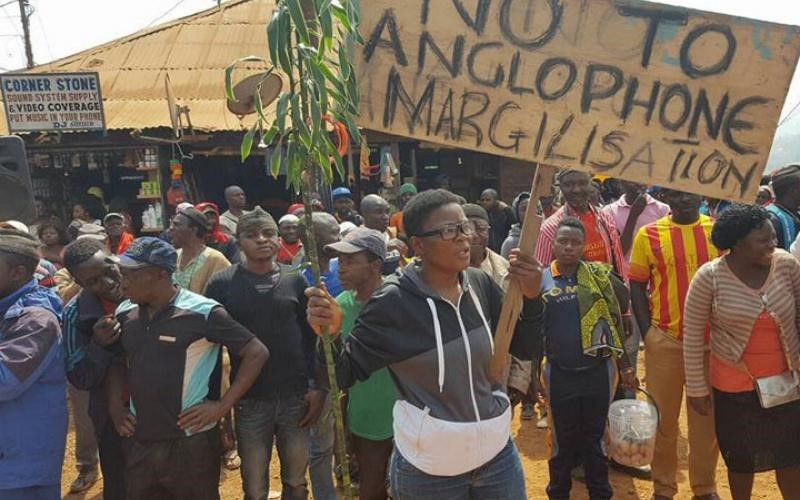
Let us address the crux of the matter. What is the crux of the matter, the reason why you now seek the independence of the Southern Cameroons which you call Ambazonia?
Permit us to start by correcting the wrong premise you have started with. We are not seeking independence but seeking to restore our independence which the United Nations General Assembly voted for on the 19th April 1961 but the Tripartite Committee it set up, made up of the governments of Britain, La Republique du Cameroun and the Southern Cameroons never met to concretise it.
The crux of the matter is the restoration of legality, truth and justice in the relationship between the Former UN Trust Territory of the Southern Cameroons, now referred to as Ambazonia which was under the tutelage of Great Britain, and La Republique du Cameroun which was entrusted to France. We were groomed for independence like every other UN Trust Territory including French Cameroun as prescribed by Art. 76(b) of the UN Charter. We even had quasi autonomy, with a Premiere as Head of Government affairs; a multiparty bicameral Parliament with Ministers appointed from parliament; a stable judiciary and a vibrant economy with positive trade balance from 1954 to 1961. Our people were interested in total independence but the UN imposed a Plebiscite on our people on the basis of a UN sponsored document called the « The Two Alternatives ». The two alternatives document defined clearly what the situation would be should we vote to accede to independence by joining Nigeria or La Republique du Cameroun. Even though we voted to join La Republique du Cameroun, and our decision confirmed by UN Resolution 1608(XV) of 21st April 1961, the governments of La Republique du Cameroun with the help of France and the silence of Britain, reduced both the « Two Alternatives » and Resolution 1608(XV) to a dead letter. This was such that after the failed attempts of the Foumban Conference of 21st July 1961 to come up with a Federal Constitution, La Republique du Cameroun unilaterally amended its constitution in its parliament on the 24th – 25th August 1961, had it promulgated into law by its President on the 1st September 1961. This was followed with the sending of Gendarmes into the Southern Cameroons on the night of the 30th September 1961 to impose the so-called Federal Constitution on the People of the Southern Cameroons from the 1st October 1961 – the date our independence was supposed to take effect as per UN Resolution 1608 (XV). This illegal imposition of the Constitution and governance of French Cameroun and the accompanying judicial, social, cultural and economic emasculation of the Southern Cameroons are the crux of the matter. Our people are seeking the restoration of a stolen past and patrimony for which we have no other alternative and shall resist till we get back what is rightly and legitimately ours. The La Republique du Cameroun project to completely assimilate the Southern Cameroons as confirmed by Mr Biya in the 2019 Moh Ibrahim Foundation interview in Paris has woefully failed.
A brief rundown on how assimilation in the education sector was conducted by Cameroun is as follows:
Firstly, Yaoundé deliberately sat on any project that was meant to foster the development of minds and competences of Southern Cameroonians, and also did everything to dismantle inherited Anglo-Saxon educational institutions and infrastructure that were very solid and resourceful.
In 1962, the US government offered financial assistance for the construction of the Cameroon College of Arts, Science and Technology (CCAST) Bambili, this college was meant to lay the foundation of the first Anglo-Saxon university of West Cameroon. Yaoundé sat on the finances and stifled the project. This led to the migration of our best brains to other countries in quest of knowledge.
In 1972, after the sham referendum, Mr Mongo Soo, Minister of National Education appointed the first Francophone to manage GTC (Government Trade Centre) Ombe with a mission to reduced it to a Government Technical College. Consequently, by 1973, Yaoundé had replaced all Anglo-Saxon vocational education curriculum and syllabuses with the colonial French technical education curricula and syllabuses, while the prestigious vocational education certificates administered from London were replaced with Francophone technical certificate examinations.
By 1975, all workshop equipments had been dismantled and carted away to East Cameroun and Ombe became a shadow of itself. Plans for its transformation into a Polytechnic were killed.
Very aggressively, French speaking instructors were introduced into public English technical colleges, with the sole purpose to discourage and kill technical education and vocational training in the territory.
Several times, students and parents took to the streets between 1980 and 1994 to protest and block persistent attempts at complete assimilation and annihilation of our Anglo-Saxon system of education. The Cameroun government responded each time with brute force and crackdowns that resulted to several arrests, detentions, torture, injuries and deaths.
The peak of francophonisation was in 2004 when English speaking candidates in the Baccalaureate Technique examination, Motor Mechanics Option, were asked to « Give the functions of a candle in the engine of an automobile ». Candle in the question was supposed to mean « spark plug ». Investigations into this scandal by the CATTU (Cameroun Teachers Trade Union) culminated in recommendations for the creation of the HTTTC, the HTTC, and a university in Bamenda. It took six years of advocacy, lobbying and arm-twisting for these institutions to be created. However, the purpose of their creation was soon defeated as Francophones flooded them at all levels; as students, academics and administrative staff.
In 2011, the CATTU called for an Estate General (Education Forum), in a bid to seek long lasting solutions to the now perennial problem of cultural interference. The call was heeded to and the said forum was convened for 2013 by the then Prime Minister who charged the Minister of Higher Education to oversee its organisation. Up until the 2016/17 education strike, the said forum had not held; the Minister of Higher Education, of Cameroun origin, deliberately snubbed the Prime Minister of Southern Cameroons origin.
By 2014, the negative impact of French-speaking pupil teachers on internship (practicum) from the teacher training colleges of the universities of Bamenda and Buea could no longer be ignored. All attempts to solve the problem met with resistance. By 2015, about 80% of graduating teachers being posted to English speaking colleges, both general and technical, were Francophones. The teachers’ unions of the English system of education in the territory of the Southern Cameroons had no choice but to call for the indefinite strike action that crystalised into the independence restoration movement following Yaoundé’s refusal to look into the problem and its high-handed approach that resulted in the death of five (5) youths in Bamenda on the 8th December 2016. The degree of adherence to the strike that saw businesses and transport activities shut down for days should have informed Yaoundé that our people were ready to lay down even their lives for the education of their children. The shooting to death of the five youths marked the point of no return. It was better to die trying to restore a nation than die begging to be accepted where we were clearly not wanted since 1961. The refusal of the Francophone teacher trade unions to join and support the strike in spite of the fact that most of their leaders’ children attended English system schools was very revealing. The problem was consequently restricted to our territory and with good reason; it was our children that were specifically targeted for annihilation, not theirs.
Without going into details, the Judiciary in the Southern Cameroons suffered similar abuses and bastardisation by the Yaoundé government which was bent on scraping off our much cherished, well developed and time-tested independent Anglo-Saxon legal system in favour of the Francophone Civil Law system which claimed superiority but left a lot to be desired. Our procedures and laws that had sustained our stable political and socio-cultural and economic institutions since the British Trusteeship Mandate were progressively replaced with French Laws and French speaking judicial officers and law enforcement officers who were a thorn in the flesh of the lawyers and people who appeared before them for judgement.
By 2016 more than 70% of the magistrates and presiding judges were French speaking who made no effort to learn the language or Anglo-Saxon legal practices but were rather more and more oppressive in their way of handling cases in the courts. Hence, the lawyers sit-down strike from October 2016 which kick-started the crisis that rapidly evolved into the present conflict.
With all the above and more, we firmly believe in the restoration of the statehood of the Southern Cameroons (called Ambazonia, after 1st Oct 2017) as the ONLY viable solution because it is a matter of identity wherein we have been consistently hated for who we are and not for anything we have done. The conflict is about the restoration of legality, truth and justice.
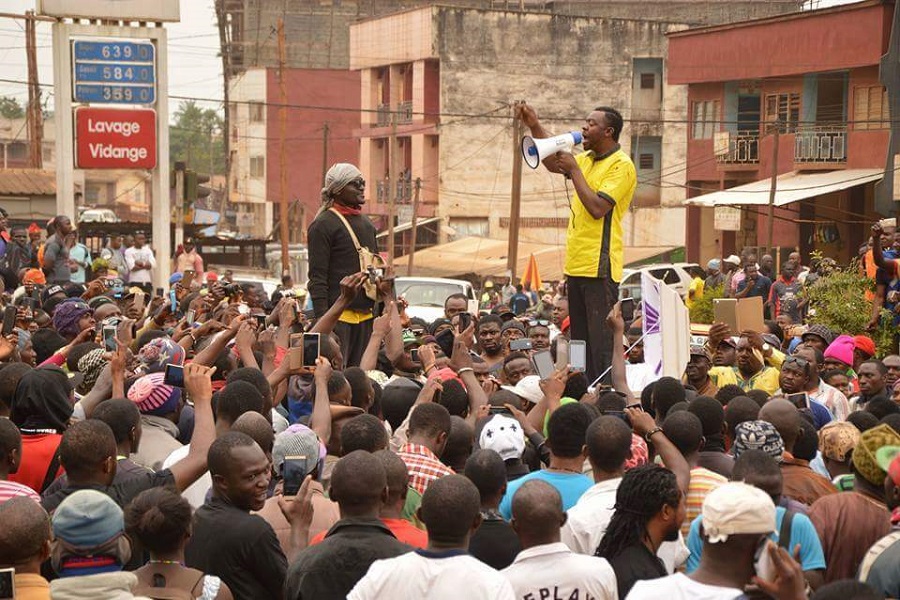
You think the solution is the creation of a small state (territory wise) at a time when the trend is for nations to come together. How beneficial is this to Cameroun and to the nation you seek to break away with?
Your mention of « sécession » necessitates another correction because it presupposes the breaking away of a part of a whole whereas you know that the Southern Cameroons has never been part of La Republique du Cameroun at any time in their history. La Republique du Cameroun got its independence on the 1st January 1960 and on 20th September 1960 was admitted to membership of the UNO and international community with clearly defined population and territory whose boundary were frozen at international Law and she remained as such until she militarily invaded and occupied the British Southern Cameroons on the night of the 30th September 1961 to impose her Constitution and governance therein.
Again, you refer rather derogatorily to the Southern Cameroons as « …small state (territory-wise) … ». Permit me draw your attention to the fact that the Southern Cameroons (Ambazonia) with about 43,000Km² of territory, with clearly recognised and demarcated international boundaries since 1939 is larger than 21 independent member states of the African Union and many states in Western Europe; and almost all the new countries of Eastern Europe. Here, we are talking only about territory and not population and natural resources.
You also seem to have missed the point and meaning of globalisation. You are yet to cite a single country that gave up its independence to be subsumed by another in the name of globalisation. Even so, remember the experience of SeneGambia and more recently, Brexit. So what is wrong if Southern Cameroons also exits from an illegal union that clearly serves no good purpose for her people? When we fully exit, both Cameroun and the Southern Cameroons would address their developmental challenges easier without the more challenging embarrassments of the two strong and opposing cultural identities inherited from our colonial past, which we cannot pretend about. They would be in better positions to foster bilateral and multilateral cooperation that will extend the frontiers of globalisation. Unity must be consensual and never imposed.
When you say that the Southern Cameroons was never part of La République du Cameroun, one can retort that the Southern Cameroons did not exist when Cameroon was under German protectorate
The attempt to tie Southern Cameroons to La Republique du Cameroun on the basis of a German Kamerun is a cliche and a fallacy. It is such a faulty argument to justify why we are in this stalemate and why Cameroun is causing mayhem on our people. It also brings to the fore two things: either it is a deliberate attempt to conceal historical facts from their own society or it reveals with dismay, a complete lack of mastery of their own historical reality.
The connotation German Kamerun speaks of a Protectorate that was under the Germans from 1884 to 1916. During this period, neither French Cameroun nor Southern Cameroons existed. Remember that La Republique du Cameroun is not the successor state of German Kamerun. German Kamerun ceased to exist after World War 1 which saw the defeat of Germany. At the end of the war, the spoils of war in question here – German Kamarun was shared between Britain and France. In the Versaille Peace treaty, in France in 1922, Article 22 of the League of Nations’ Covenant confirmed the division of German Kamerun into British Cameroon and French Cameroun as Mandate Territories and their territorial boundaries were clearly established and defined. After this, there was the Anglo-French Boundary Treaty which established the boundaries upon which French Cameroun eventually got its independence on the 1st of January 1960 as La Republique du Cameroun. In 1946 British Cameroon and French Cameroun became UN Trust Territories under Britain and France respectively.
On the 1st of January 1960, French Cameroun got its independence from France and became a legal personality with the name ‘La République du Cameroun’ with clearly defined boundaries. Upon La République du Cameroun’s attainment of, Southern Cameroons was not part of it. Southern Cameroons later on got its own independence from Britain on the 1st of October 1961, on the strength of the 1931 Anglo-French boundary treaty.
Upon attaining independence, the boundaries of La Republique du Cameroun became frozen. The resolution for AU signatories to uphold and respect borders existing at the time of the achievement of independence is enshrined in AU Charter (Resolution ahg/r.s. 16(1)); the AU Constitutive Act
(Article 4b). To the best of our knowledge, there is no treaty anywhere that extended the borders of La Republique du Cameroun beyond its territory as it was at independence to include the Southern Cameroons: If you know of any, bring it to light. Thus, we are merely asking La République du Cameroun to respect these international instruments and put an end to this conflict.
To further buttress our point, today as we speak, the territory that made up German Kamerun, consists of Southern Cameroons, La Republique du Cameroun, parts of Chad, Central African Republic, Congo Brazzaville, Gabon and Nigeria. Going by your imagination, is La République du Cameroun, claiming ownership over the above-mentioned territories that made up German Kamerun or its claim is only over Southern Cameroons? Why is it that the idea of German Kamerun limits itself only to the occupation/annexation of the British Southern Cameroons? The attempt to reconstruct German Kamerun is called irredentism, a crime in international law. La République du Cameroun’s claim over Southern Cameroons on this ground is therefore a fallacy and remains as such.
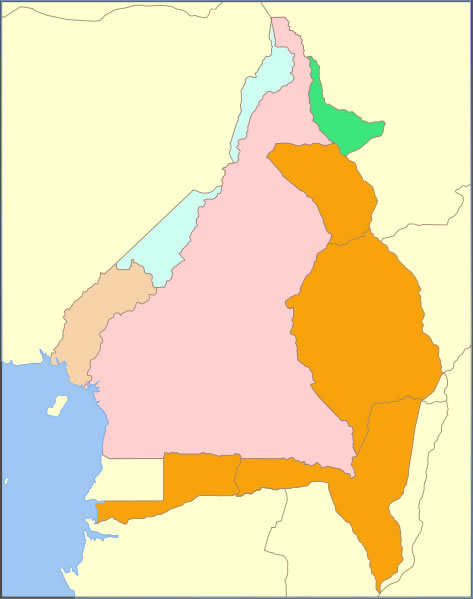
Elsewhere, such a project goes through a referendum but, you have chosen the vertical and authoritarian approach. How different are you then from the Yaoundé regime and their methods that you oppose? What percentage of Anglophones (people of NW, SW regions) support the cause?
Your question is based on the wrong premise that we started the war. Recall that Mr. Biya on his return from the Abidjan Francophonie Summit and while still at the Yaoundé Nsimalen International Airport, on the 30th November 2017, declared war on the People of the Southern Cameroons. Since then, we have been merely acting in legitimate self-defense, which is an internationally recognised inalienable right. However, our readiness to accept an internationally mediated peaceful resolution of the conflict does not exclude the conduct of a referendum under acceptable international facilitation and supervision.
In terms of the proportion of our population that supports our cause, a survey by Cardinal Tumi’s team of experts in 2020/21 revealed that over 69% of our population is in support of our restoration quest. Take note that the Tumi survey did not include the option of independence: – the respondents added that option on their own volition and it was the overwhelming response from that study. Another survey by the USA based Coalition for Dialogue and Negotiation (CDN) revealed that over 86% of our population is in support of the restoration of our nation’s independence. Furthermore, the massive turn out on the 22nd September 2017 and 1st October 2017 of our people in response to the call for the restoration of our independence makes it glaring that a large majority of our people yearn for total and complete independence.
Aren’t there other solutions that would help mitigate the suffering of the people caught in the crossfire?
To end the conflict, we have always called for an internationally mediated settlement which La Republique du Cameroun has consistently ignored. It pains us the way the Cameroun Military is committing Genocide on our people. There is clearly no other solution considering the egregious violations of human rights and suffering of our populations. In fact, it is in the interest of Cameroun to urgently discontinue their unwarranted military assault on our people that our relationship with them as unavoidable neighbours should not slip into another Israeli – Palestinian model due to the pains of this war, which has been fought exclusively on our territory.
Let us take stock of the struggle. What is your assessment of the loss of human lives; the destruction of property; of the displaced; of children not going to school?
Cameroon approaches governance with the attitude that not all human lives have equal value. This attitude is palpable when it comes to how the Cameroun military have treated Southern Cameroonians before and particularly during this crisis. Our people are especially susceptible to discrimination, dehumanisation, torture and extrajudicial killings of especially women, children, persons with disabilities and even insane persons.
There are countless examples of human rights violations that have occurred during the course of this war. Some examples that are especially heartbreaking include: – the burning into ashes of an 80-years old mother, Mami Api, in her house in Kwa-Kwa, the killing of 3-month-old Baby Martha by Cameroun Military in Muyuka and the beheading of Sam Soya from Belo-Kom in a public square. Other examples include the shooting of children at close range by the military like Baby Carol in Buea and other babies in Ndop and Bamenda who were on their way to school, from school or from the farm with their mothers. In some cases, their skulls were shattered by bullets before their helpless mothers who watched painfully as their children suffered excruciating pains before dying. In addition, memories of the Ngarbuh, Mautu and other massacres are still very vivid in our minds, where the military shot and killed entire households unprovoked. « Special investigations » from the Cameroun government itself have established unambiguously that their military carried out these atrocious acts on innocent civilians in Ngarbuh. Their only offense was that they were born Ambazonians.
The records of Human Rights abuses on our people by the military are very compelling and staggering. The Cameroun government has unrelentlessly intimidated, harassed, arrested and detained health workers, school teachers, lawyers’ journalists, etc. The Cameroun military has burnt down schools and hospitals in Southern Cameroons with impunity, and occupied school and hospital premises in total violation of the inviolate status of these institutions. Between 2018 and 2022, the Cameroun military burnt down schools and hospitals in Kumba, Muyuka and most recently the General hospital in Mamfe just to name a few. In Mamfe for instance, the Cameroun military evacuated patients who had been admitted into the hospital before setting the hospital ablaze. We are equally aware of the Kumba General hospital that was also set on fire by the Cameroun Military. Similarly, the Cameroun military has attacked schools in Kumba, Bamenda, like elsewhere where students were gruesomely killed for no offense committed. These children left their homes enthusiastically like their peers everywhere on the globe, excited to pursue their dreams, leaving behind their parents and siblings and were only unfortunately found lying dead in their own pool of blood, perforated with bullets that only the Yaoundé military could inflict. What is most vexing is that perpetrators of these heinous crimes on our youth still walk around free without any accountability?
The ramifications of these human rights violations on the Southern Cameroons (Ambazonia) disproportionately affect those living in urban and rural areas. Summarily, since Mr Biya declared war on the People of the Southern Cameroons on the 30th November 2017, it is estimated that the Cameroun Military has killed over 40,000 civilians, razed down over 550 villages and communities, caused the displacement of over 1.7million persons with over 150,000 of them as refugees in Nigeria alone. Over 4,000 women and girls have been raped, thousands of people have been maimed, including the aged, women, children and physically challenged persons, and over 3,000 people are incarcerated in prisons and other detention facilities – both official and make-shift facilities.
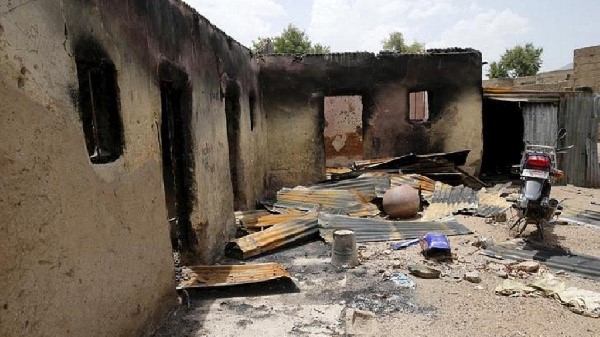
Aren’t you exaggerating? What is the responsibility of your fighters in this death toll? Is the Cameroonian army solely responsible for this tragedy?
There is no exaggeration whatsoever, that the Cameroun Military is solely responsible for the atrocities we have mentioned above. You can list the Ngarbuh, Kwakwa, Kumba, etc massacres against them but there is none you can cite against our fighters. Also recall that the influx of refugees into Nigeria in December 2017 was as a result of the Administrative Order issued by the colonial Divisional Officer for Manyu Mr Oum II ordering villagers to evacuate their villages in Manyu or be treated as dogs and terrorists. Remember that La République du Cameroun is the aggressor; Remember that in 2017, as a peace-loving people, we were protesting with peace plants and then on the 30th of November 2017, Mr Biya declared war on us. Since then, our fighters are only acting in self-defense. Remember that this war of self-defence has been fought exclusively on our territory, and that it is impossible for our Restoration forces to inflict this type of pain on the people they are defending. To buttress the fact that our Restoration Forces are civil, it will surprise you that no single civilian francophone has been attacked or killed in Ambazonia. It is worth noting that Cameroun military and some of its top government officials sponsor militias and fake Ambaboys. It is therefore obvious that the responsibility of the genocide cited above rest squarely on Cameroun military.
The IRA existed but it was only when they got to London that they became internationally recognized and respected.
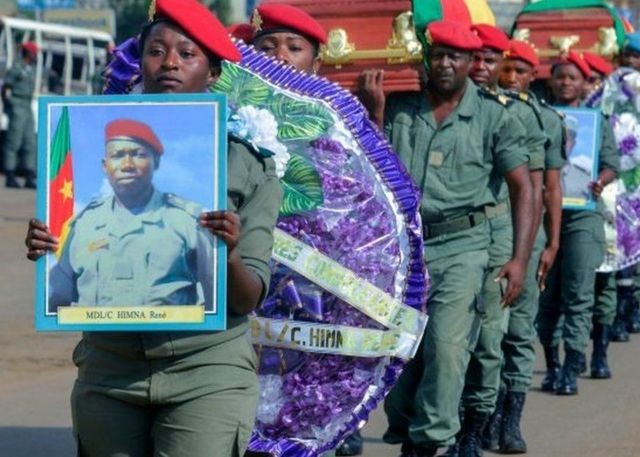
Aren’t the people of the North West and South West paying a great toll?
From the statistics above, the Ambazonian people are paying a great toll due to the atrocities of the Cameroun Military. This seems to have been part of the assimilation agenda since 1961. Remember the 1962 Ebubu Massacre in which, under the pretext of hunting down ‘Maquisards’ that were hiding in the forest, our people in Ebubu, a village near Tombel were openly massacred. We have learnt that freedom is never given, it is seized, and that the price of nationhood is its people’s capacity to defend it against all forms of assimilation, annexation and or recolonisation. We are all ready to pay the price needed to restore our independence for the benefit of future generations.
What political assessment do you make concerning this crisis?
The conflict has exposed two things about La Republique du Cameroun: i) It cannot be trusted in any deal. ii) It looks at the people of the Southern Cameroons as sub-humans and thinks it can complete its annexation policy over the Southern Cameroons or annihilate it and wipe out history as Mr Biya confirmed in 2019 in Paris. Truth is very stubborn and will prevail in this conflict.
Mr Biya thinks that he can complete their annexation policy through a military victory. He has failed in this respect. For six years now and counting, beginning with bare hands, our people have been able to defend themselves from the Cameroun Military assaults to a great extent. Cameroun cannot and will not win this war. No military has ever defeated a determined people on their territory; we will not be the exception. Eventually, and ultimately, we shall come out victorious in this quest.
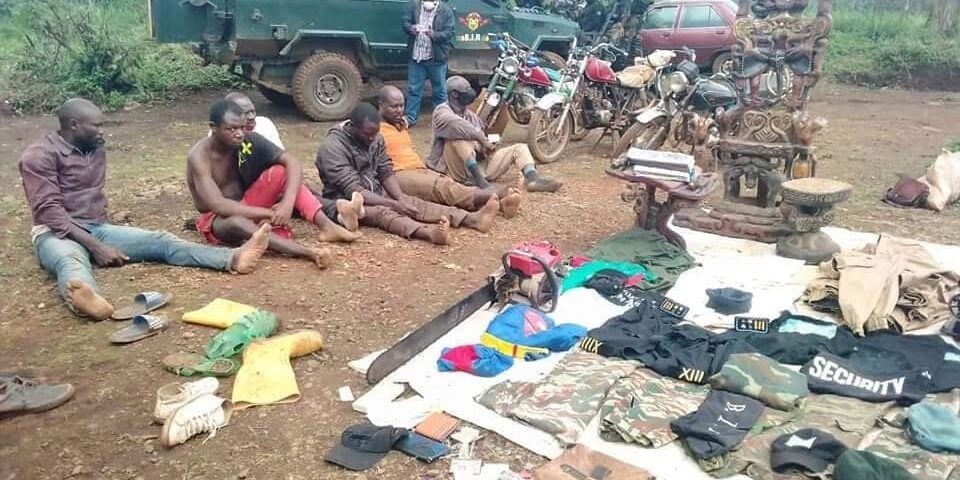
You seem to be increasingly isolated by the international community. Are they taking new interest in the crisis? Why do you think so?
From our standpoint, we think otherwise because the truth and international law are on our side, and awareness on the conflict is increasing. The recent immigration Temporary Protective Status (TPS) extended to people fleeing this conflict to the USA, speaks volumes. In addition, the consistent highlighting of the conflict by Rights Groups and the increasing media coverage, speaks otherwise. The wheel of international law and diplomacy may be slow, but it will catch up with all crimes against humanity.
Let us look at perspectives. Does the existence of many movements seeking the independence of the NW and SW not weaken the quest?
We do agree with you that there are many groups seeking the restoration of independence of the Southern Cameroons. However, we would point out to you that the existence of many groups in a revolution is not unique to our case. If the many groups could mean anything, it is rather that our people are increasingly looking for options that could be explored for us to attain our goal soonest. It is also evidence of their ever-increasing desire and zeal to participate and to contribute. The many movements in our struggle demonstrate our crave for democracy as each serves as a check to the other, since we know the adversary we are dealing with. The multiplicity of liberation movements all fighting the same fight is our strength rather than weakness. At the appointed time, all the movements will collapse their differences and stand like one man to sing « Hail, Hail … we the Ambazonians…! »
Does not the multiplicity of actors with different visions and strategies work against your independence quest?
Differences exist only in the approach towards arriving at the end. The main objective of all the groups is the restoration of the independence of our homeland. We are united in purpose but may differ in strategy. We are confident that we will come together at the appropriate moment and enter Buea as one.
What is your relationship with the leaders of other movements?
We relate well with all the other groups that share the same focus/goal and aspirations as we do which is to free the homeland. Our relationship is very cordial, respectful, despite the noise on social media.
Is there a rapprochement amongst the leaders of movements? If yes, at what level are the talks?
Absolutely yes. We frequently exchange notes with one another on critical areas of collaboration. We are not aiming at uniformity but at unity and collaboration. So far, we are registering significant progress in these domains.
Do you not think that time is against you? Given that Yaoundé is benefitting from the war, and that she is banking on the fatigue of the people, do you not see the need to consider another strategy?
To us, time is immaterial in this conflict. Whether it takes a short or long time, our goal remains the same, the restoration of our nationhood. Should La Republique du Cameroun be counting on time to win the war, then, they are making a big blunder. They need more than enough resources (which they don’t have) to sustain the war for a very long time. Remember that when Mr Biya declared the war on the 30th November 2017, some stated that we would be crushed in 2 weeks. It is now 6 years and counting; who then is under the pressure of time? Given our determination, resolve and resilience our people will not be tired anytime soon. Given that justice and truth must prevail with time, we can confidently say that time is instead on our side.
Do the arrests and charging in court of some of your supporters in the US not send you a new message from the US government; that you should consider another solution?
It is true that arrests have taken place in the USA and Cameroun is jubilating but we can state confidently that these arrests do not translate into American opposition to our quest for the Restoration of our statehood.
It should be noted that the latest arrest of our 3 compatriots in the US is not because of their support for our course, but because it is alleged that as US citizens, they contravened US laws. The United States, unlike Cameroun, respects the rule of law. The people in question have only been arrested and charges preferred against them while investigations are ongoing, they have not yet been convicted. Their innocence is still upheld and in fact as we speak, one of them has been granted bail and released and the other two will soon be granted bail pending trial. Their arrest had nothing to do with American policy towards the conflict as insinuated by Cameroun. So there is no cause for us to be alarmed or for Cameroun to jubilate.
What is your take on the actions taken by the Yaoundé government in response to your demands, that is, the Grand National Dialogue, decentralisation, special status for the NW/SW regions, the DDR Centres with mission to disarm the population and bring back peace?
This conflict will not end without both parties sitting on a table to talk. All conflicts end up on a negotiation table and this one will not be an exception. To the best of our knowledge, (from 1961 till date) in trying to hide the problem, La Republique du Cameroun has been talking always to itself. In 1975, President Ahmadu Adhijo created a Commission of Inquiry chaired by the then Prime Minister, Mr Paul Biya with Mr Abouem á Tchoye as Secretary. The Commission’s recommendations to this date have never been made public – they were shelved. There were several other calls like: the Elites’ call, the AAC1 call, AAC2 call, the Banjul 2009 ruling, calls from the international community including the UN. La Republique du Cameroun has never sat down to talk with the people of the Southern Cameroons. If we are wrong, cite just one example to correct us. So to us, all what you have cited above as Cameroun government actions are non-events and therefore, inconsequential.
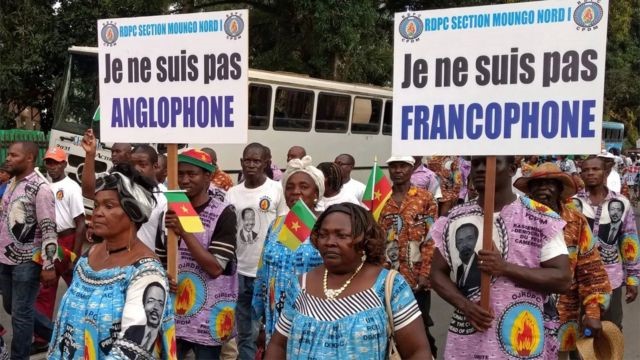
Is there a possibility that these measures will succeed? and why?
The above measures you are referring to, if they were meant to resolve this conflict, are non-events, inconsequential and dead on arrival. It’s been close to 3 years since such a loud sounding noise was made. What has changed on the ground? Absolutely nothing. They resolved nothing! If anything, they have been a waste of resources.
We learned on two occasions that you were in negotiations with the Yaoundé government. Is that true?
No, there were no meetings for a negotiation. However, in April and July of 2020, we met with Cameroun government officials to explore avenues for a ceasefire and talks.
What then stopped the talks or negotiations or, who is blocking the negotiations?
Again, the meetings were not negotiations. Note that on our part we have always been open to negotiate an end to this conflict. The blockage does not come from our part but theirs. Evidently the Cameroun government suffers from bad faith as far as negotiating an end to the conflict is concerned. We believe that there exist among their ranks what conflict scholars refer to as « conflict entrepreneurs » who perpetuate circles of violence with the sole motive of profiting from it. This category would not want the conflict to end, so they dishonestly lure others through state propaganda apparatuses to think a military victory is in sight. These are the people fostering the conflict and blocking initiatives for a negotiated settlement.
You seem to hold that you have reached the point of no return. But we know that the truth is circumstantial politics. In other words, what is true today might not be true tomorrow. Tell us strictly, what is it that will cause you to change your mind and to envisage a country with Francophones and Anglophones living together?
From 1961 to date, the government of la Republique du Cameroun has manifested bad faith and extreme wickedness towards our people. Examples abound. If you hate a people for who they are, no amount of loyalty or appeasement will change the way they perceive or relate with you. We have reached the conclusion that honesty and trust is completely lacking in the Cameroun government DNA. So, we have consciously chosen the path of self-determination for our sovereignty as a nation. Mind you, it is an inalienable right that cannot be denied us. In fact, the AU Charter makes it mandatory for Member States to give assistance to territories like ours fighting to end colonialism in all its manifestations.
In a bid to mitigate the suffering of the people and to enable the return of the displaced and those in exile, and more importantly, to enable children to return to school, do you not see the need for all the movements and the Yaoundé government to sign a peace accord? What will be the conditions for such a peace accord to be signed?
The need for a peace accord between the Southern Cameroons (Ambazonia) and La Republique du Cameroun cannot be overemphasised but it is overdue. The international Community has been calling for this for long but Mr Biya has paid no attention to the calls. Remember the Banjul ruling of 2009 in Communication 266/2003 called on Cameroun to engage in constructive dialogue with the people of the Southern Cameroons but the Cameroun government shied away till date. We have always expressed our readiness to engage with Cameroun so as to resolve the conflict by addressing its root causes. However, we have made it abundantly clear that for a peace accord to be reached, the following confidence building measures should be put in place:
– Mr Biya who declared war on the people of the Southern Cameroons should declare a ceasefire;
– That Mr Biya should withdraw his military from the streets and neighbourhoods of Southern Cameroons.
– That all persons arrested, detained or imprisoned in connection to this conflict should be released;
– That uninterrupted access should be granted to Southern Cameroonians (Ambazonians) who wish to return/visit home, to do so without fear of harassment, torture, arrest or imprisonment.
– That La Republique du Cameroun should commit to an international negotiation process, mediated by a mutually agreed mediator and in a neutral venue mutually acceptable by both parties; and,
– That there should be a Commissioning of a UN Security Council Fact Finding Mission to the Southern Cameroons to ascertain the level of atrocities and bring the perpetrators to book.
Should these measures be put in place and frank talks begin, peace would have been given a chance and our people could once again resume their normal activities without fear.
We have just learned from well-informed sources that Canada has agreed to act as facilitator in this crisis. We also learn that all parties to the conflict have also agreed to enter into a negotiation process for a comprehensive, peaceful and political resolution of the crisis. Do you confirm this information? What do you think of all this?
It is too early to comment on this now.
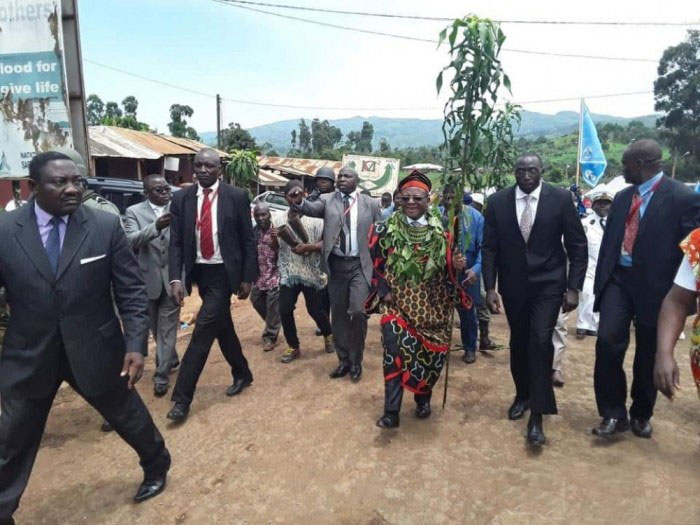
What message do you have for the people of the NW/SW in the new year, 2023?
Why do you consistently call them the people of North West and South West? They should be rightly called the people of the Southern Cameroons, or Former British Southern Cameroons now known by the name Ambazonia.
Dear people of Ambazonia, our fight to restore the independence of our statehood is a good fight. Truth and International Law are on our side. Our fight is rooted in History, Law, Culture and Geography. A hen is never too small over her eggs let alone her chicks. Above all, self-determination is a fundamental right. We all know what we have been through in the hands of La Republique du Cameroun and who they truly are. It is total independence we want and victory is within sight. We would be treated worse than slaves should we even just nurse the idea of giving up. So, we should never give up that which is legally and legitimately ours.
To the international Community, it seems the Never Again commitment after the Rwandan genocide was mere lip service. Genocide is happening in the Southern Cameroons, perpetuated by the military since 2017 and the world is turning a blind eye! What about the Responsibility to Protect (R2P)? Is it reserved for particular races or continents? The lives of the people of the Southern Cameroons also matter. Evoke these instruments and save the people of the Southern Cameroons. Above all, we call on the United Nations and Britain to complete the decolonisation process of the Southern Cameroons, for peace to reign in the Gulf of Guinea.
Interwiew conducted by
:Jean-Bosco Talla
&
Roger Kaffo Fokou


